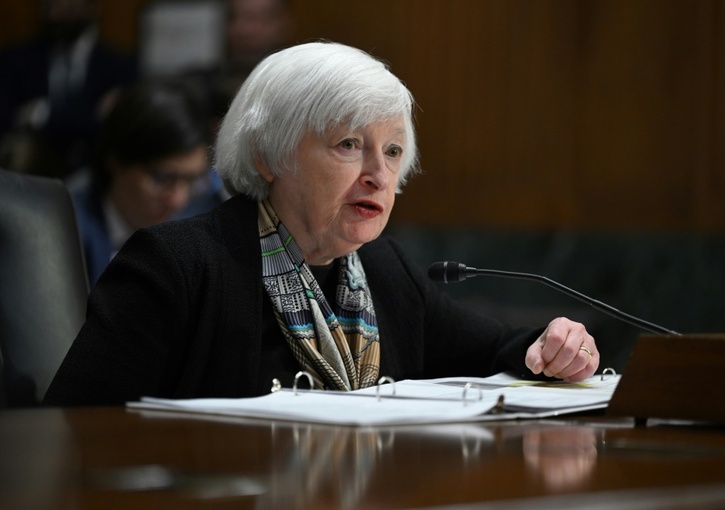The US banking system remains sound despite market anxiety over the collapse of Silicon Valley Bank (SVB) and Signature Bank, Treasury Secretary Janet Yellen told members of Congress on Thursday.
The consecutive bank failures are the sector's biggest casualties since the 2008 financial crisis, prompting US authorities to quickly step in to protect depositors.
Amid contagion fears, the US Federal Reserve also announced it would make extra funding available to banks to help them meet the needs of depositors, which would include withdrawals.
Yellen, speaking before the Senate Finance Committee, described the government's actions as "decisive and forceful."
"This week's actions demonstrate our resolute commitment to ensure that our financial system remains strong, and that depositors' savings remain safe," she said.
"I can reassure the members of the Committee that our banking system is sound, and that Americans can feel confident that their deposits will be there when they need them," she said at the hearing, which covers President Joe Biden's latest budget proposals.
Fears of contagion have spread to Europe, with a market rout forcing Credit Suisse to tap a financial lifeline from the Swiss central bank after the share price of Switzerland's second biggest bank crumbled on Wednesday.
SVB -- the United States' 16th biggest bank by assets and a key lender to startups in the country since the 1980s -- collapsed after a sudden run on deposits, prompting regulators to seize control on Friday.
On Sunday, the Treasury, Fed, and Federal Deposit Insurance Corporation set out plans to ensure SVB customers would be able to access their deposits, while the Fed introduced a new lending tool for banks in an effort to prevent a repeat of SVB's quick demise.
While Biden sought to reassure Americans over the country's financial system at the start of the week, there were immediate signs of pressure at other US lenders.
- 'Careful look' -
Asked Thursday about the issues behind SVB's collapse, Yellen noted that the bank, to meet liquidity needs, had to sell assets that it expected to hold to maturity.
Given the interest rate increases that have occurred, assets including Treasuries had lost market value, she said.
"There was a liquidity risk in this situation. There will be a careful look at what happened in the bank, and what initiated this problem," Yellen added.
On the debt ceiling and whether the Biden administration would commit to negotiating with Republicans amid efforts to introduce aspects of "fiscal restraint" in the debt limit discussion, Yellen said Biden is prepared for talks with Republicans but this "can't be a condition for raising the debt ceiling."
The United States risks defaulting on payment obligations as soon as July if lawmakers fail to resolve a gridlock and raise the federal borrowing limit, according to Congressional Budget Office estimates.
Republicans are threatening to block the usually rubber-stamp approval for raising the nation's credit limit, if Democrats do not first agree to steep future budget cuts.
"The debt ceiling simply must be raised, and to put at risk the full faith and credit of the United States and to threaten to cause an economic and financial catastrophe isn't an acceptable requirement," Yellen said.
bys/bgs
© Agence France-Presse
Your content is great. However, if any of the content contained herein violates any rights of yours, including those of copyright, please contact us immediately by e-mail at media[@]kissrpr.com.
Source: Story.KISSPR.com

